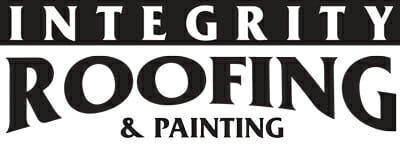Insurance Fraud
Beware of Insurance Fraud! Be an Educated Consumer!
Please take a few minutes to read this document and protect yourself.
“Discounted “or “free” roofing work (when being funded by insurance companies) is against the law in Colorado. There is no way around it.
Roofers paying for clients’ deductibles, even partially, is illegal in Colorado. It has always been insurance fraud, but our senate has taken it a step further. In 2012, Governor Hickenlooper and the Senate passed Senate Bill 38 clearly specifying that the discounting a roof deductible in any way to be illegal. Senate Bill 38
How can it be insurance fraud for a roofer to pay my deductible?
The insurance company determines that the correct amount for a roof replacement is $10,000. Now let’s say the homeowner has a deductible of $1,000, which is their portion of the bill. When done legally, the correct amount of $10,000 is invoiced to the insurance company upon completion of the work. The insurance company owes $9,000 of it and the homeowner owes $1,000.Each party makes their payment to the roofer, totaling $10,000.
A DISCOUNT ROOFER shows up at the doorstep of a homeowner and says with a smile, “We’ll help cover your deductible by giving you a $1,000 sign credit.” This sounds like a great deal, you get $1000 to allow them to put a sign in your yard and ultimately get a free roof. Right? It is not every day that a company offers you that much money for something that takes so little effort on your part. We have even heard of a scan in which fake loans are being created by a local roofing company in the exact amount of the deductibles to attempt to get around this law.
Here is the catch. In most cases, insurance payments are disbursed in two payments. The first payment is released before the work is started and the final depreciation check has to be recovered with a work completed invoice to your insurance company. Fraud occurs when the homeowner and roofer inflate the price of their final invoice to the insurance company beyond what was paid on the real bill to the roofer.
Here’s an example of how it works. The DISCOUNT ROOFER overbills the insurance company for the full $10,000, when in reality only $9,000 is being charged to the homeowner. Sometimes they even are bold enough to give the homeowner two separate written invoices with instructions to keep the real one hidden in their own records and submit the fake one to the insurance company. As soon as the fake invoice is given to the insurance carrier, theft of $1,000 in the form of insurance fraud has just occurred. Had the roofer or homeowner submitted to the insurance the real price being charged for the roof ($9,000), the insurance company would have reduced their final depreciation check to the homeowner by $1,000. However, based upon the testimony of the homeowner and roofer, when the fake invoice for $10,000 is submitted to the insurance company, the full amount of depreciation is released to the homeowner.
The fact that the $1,000 was overbilled and never paid by the homeowner to the contractor constitutes insurance fraud. Please do not be unsuspectingly taken into an illegal scam that can have serious consequences to you, the homeowner. All Colorado roofing companies are aware that this is illegal, yet sadly, many still feel they are above the law and it does not apply to them.
So what? Insurance companies have lots of money. How does this negatively impact me?
Insurance companies have smart business practices. To remain solvent, they have ways to counter this practice. They can raise insurance premiums and deductibles which impacts everyone. Eventually they may decide to convert roof coverage to an actual cash value policy and not pay depreciation at all. While this would eliminate the opportunity for insurance fraud, the homeowners would ultimately lose as they would then be responsible to come up with the deductible and the depreciation on their roof replacement.
Why work with someone who is proposing that you commit fraud with them? Is there any reason to trust that they would be honest with you? If a roof salesman knocks on your door offering you a “free roof,” do yourself a favor and hand them a printed copy of Senate Bill 38 and ask them politely to leave. You can only lose in the long run if you are pulled into committing insurance fraud with them.
The old adage applies, if it sounds too good to be true, it usually is!
